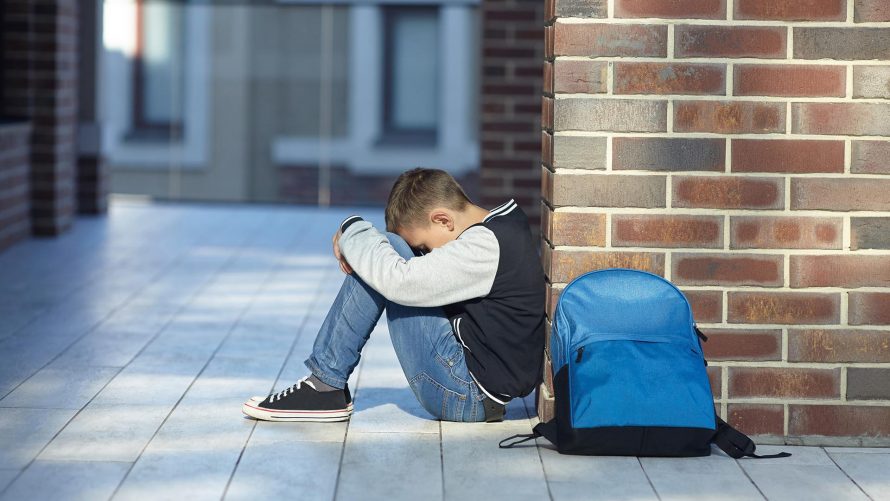The tactics & methods of modern day bullying is vastly different than that of the past. Bullies feast on the vulnerable and crave the attention and taste of power they receive by hurting others. And now, bullying comes in many different faces as technology creates and instant audience.
Recent studies have shown that at least half of all children are directly involved in bullying either as the victim, perpetrator or both.
No child is immune. Kids of every race, gender, grade and socio-economic status are impacted.
As parents, there are 8 actions you can take to help end bullying in your child’s world life and school.
1. Talk with your kids –everyday.
Research shows that parents are usually the last to know when their child is being bullied or has been bullied. You can curb this trend by having frequent conversations with your child. Ask open-ended questions about their social lives, who they spend time with, what they do between classes, who they eat lunch with, who they play with at recess. If your child feels comfortable talking with you, they are much more likely to come to you when in a bullying situation.
2. Spend time & volunteer at your school.
Research shows that 67% of bullying happens when adults are not present. Schools do not have adequate staffing to be present every moment of everyday. Volunteer during recess or lunch, engage with the students, coordinate games that encourage teamwork, cooperation and inclusion. . . besides every child loves when their parents get to hang out with them at school. It makes them feel cool. ?
3. Be a good example of kindness.
Kids learn the power of positive (and negative) relationships from watching you. When you say “thank you” to the barista to getting angry at the waiter or another driver on the road, you provide an educational platform for you kids to learn positive or negative communication techniques. This is a big opportunity – don’t blow it! Every time you talk to or about someone in a mean way, you in essence are instilling that bullying is okay.
4. Learn the signs & symptoms
Most children don’t tell anyone they are being bullied. (especially adults). It is therefore vital for parents, teachers and caring adults to learn the signs a child exhibits after being victimized.
1. Frequent loss of personal belongings.
2. Complaining of headaches, stomachaches.
3. Avoiding recess
4. Loss of appetite.
5. Wanting to arrive to school really late or early.
If you suspect your child is being bullied, talk with the teach and observe their social behavior to see if your suspicions are correct. Also. . . don’t be afraid to just ask them, “Are the other kids your school treating you nicely?”
5. Create healthy anti-bully habits early
As early as kindergarten, help your child develop anti-bully and anti-victimization habits and strategies early on. Teach your child that punching, kicking, teasing and gossiping is not acceptable behavior. Adversely, teaching your child the habits you want them to exhibit such as kindness, empathy, respect, fair play and sharing creates positive peer-to-peer relationships.
Children also need to learn how to say and mean “NO”. Teach them isn’t acceptable behavior from adults and students. Teach them how to seek help from other adults or their peers. This serves as greatrole-playing games for your child.
6. Establish household rules about bullying
Your children need to first learn what bullying is and that its not an acceptable behavior in your house or outside, be it as the bully, victim or bystander. Make sure they know that if they are bullied physically, verbally or on social media, that your house is a safe place to seek help and advise.
7. Teach your children to be a good witness
Statistics show that children who witness bullying feel powerless and often never intervene. However, the kids who do take action can have a very power impact on the situation. Although, it is never child’s responsibility to put themselves in harms way, kids can often quickly diffuse a situation by yelling “STOP! You are bullying”. Kids can also help one another by offering support to the victim and becoming an encouraging audience to the bully.
8. Teach your child about cyber-bullying.
Many children do not know what cyber bullying is. As children are gaining access to online and social media accounts younger & younger each year, it is crucial to teach them appropriate online behavior to keep them safe & kind online.
Cyber-bullying includes sending mean, vulgar or threatening messages or images, sharing sensitive or private information about another person, or pretending to be someone else in order to make that person look bad.
It is advised that all parents should place their household computer in an open area where they can monitor their children’s behavior online. (We’ll be sharing more on this topic later).
Bullying isn’t going away anytime soon. But now is the time to create change in our Childs life, school culture and community. We must take a pro-active approach to curb the epidemic and in turn, spread more kindness around the world.

Written By Brian Williams
Brian is the founder of Think Kindness and considered one of the Top Youth Motivational Speakers in the country. He holds a 4th degree black belt in martial arts, has documented over 1.5 million acts of kindness, collected over 300,000 pairs of shoes for children around the world and is the executive producer of the amazing documentary INSPIRE HOPE.

